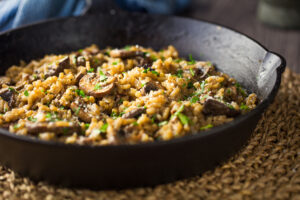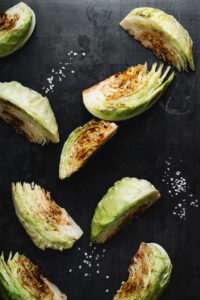FAST AND EASY COOKING TIPS TO IMPROVE DIET, ENHANCE HEALING AND PREVENT ILLNESS.
A recent study shows that people who cook most of their meals at home eat a healthier diet. But finding the time and energy to cook after a hectic day is a challenge. If you’re already overwhelmed with your responsibilities as a caregiver, how can you find time to cook tasty, nutritious meals for a loved one?
The answer: Keep it simple! Here are 10 tips to help you streamline dinner preparations so you can ditch delivery.
- Review any dietary or fluid restrictions your loved one received from his or her physician or dietitian, as well as any food allergies. Use them as guidelines when choosing simple recipes.
- Buy a simple recipe cookbook or food magazine with lots of pictures and allow your loved one to choose recipes that are appealing to him or her.
- Do an online search of your loved one’s diagnosis, plus the word “nutrition,” to find information that you can use to plan meals. Example: “diabetes nutrition” or “congestive heart failure nutrition.” If you have questions, review the information you find with a health care provider.
- Order groceries online and have them delivered or ready to pick up at your convenience.
- Instead of cooking from scratch every night, plan to cook two or three nights a week. Come up with a few meal ideas that work together so you can reuse leftovers other nights (or cook large portions and freeze smaller amounts to use on busy evenings). Have breakfast for dinner or go out to eat one night.
- Look for one-pot meals (less time cleaning up). Another way to speed prep and minimize clean-up: Pay attention when you measure ingredients. For example, after you measure dried herbs or spices, pour the amount into the palm of your hand. When you learn what different amounts look like, you can leave utensils in the drawer.
- Slow-cooker recipes can free up several hours in your day. Choose recipes with minimal preparation times and varied ingredients for nutritional value. And remember that slow cookers aren’t just for dinner! Cook steel-cut oats in a slow cooker and wake up to a hot and hearty breakfast that’s much more nutritious than instant oatmeal.
- Smoothies are a clever way to ensure daily fruit and/or vegetable intake and can be used to supplement a meal.
- Repeat as necessary–repetition in meal planning isn’t necessarily a bad thing. As long as your loved one enjoys a certain recipe, and the overall diet is well-balanced, feel free to repeat a favorite food or meal. In fact, if there’s a specific food that your loved one prefers, you can base your recipe search around that ingredient.
- Cultivate an environment of mindfulness while preparing food. This will lessen the stress of meal preparation.
For more information visit the Visiting Nurse Service of New York.





